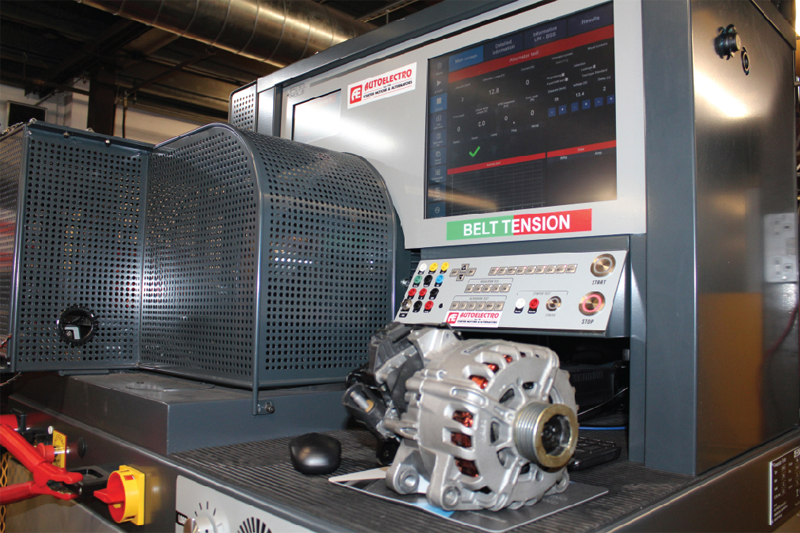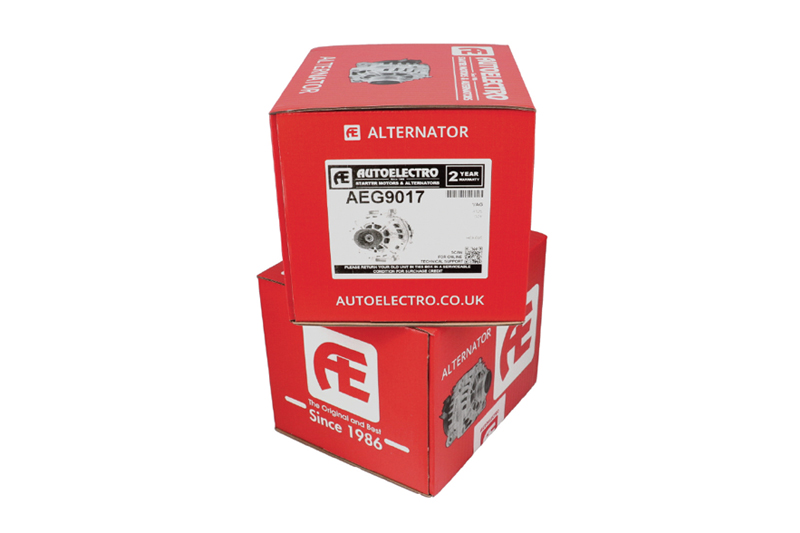
As grocery prices continue to rise, swapping to supermarket own brands is a good way for consumers to lower their food bill – in the automotive aftermarket, specifically starter motors or alternators, is switching to a ‘value’ alternative worthwhile?
In this particular product category, Autoelectro claimed knowing the origin of the part, how it is produced and what components are used makes a big difference. It also makes a difference to the price.
There are telling signs, according to its UK sales manager, Nick Hood, when a rotating electrics product has been made to a “small budget”.
He said: “In an alternator, for example, stator windings can be reduced, which will likely produce the output required when analysed on a test bed; however, because the windings are shorter, apply that to real-world driving conditions in the middle of winter, it’s unlikely to maintain that output over a long drive, when on-board electricals and accessories are in full use.
“Likewise, in the starter motor, the windings can be shortened, while quality can also be reduced on the gearing and bearings. The combination of these factors, particularly, again, in a winter period when the starter motor is likely to be put under maximum strain, can shorten the life of the part. There are ways of making a part ‘on the cheap’ but to a lesser specification.”

“Don’t be swayed by the negative press”
Switch on the news, scroll on social media or flick through a newspaper: there is little escaping cost of living headlines, whether it’s the Bank of England warning of the longest recession on record, another inflation rise, or increasing motoring costs, like filling up at the pumps.
Referring back to the supermarket comparison, Autoelectro quoted figures released in October that show that sales of own brand products increased – 8.1% in September, while branded items declined by 0.7% – which suggests consumers are “hunting” for low-cost alternatives, so is there a temptation for garages to follow suit, in the hope of doing their customers a favour?

Nick responded: “The cost of living crisis makes for grim reading and the majority are feeling the pinch – some more than others – so the last thing motorists need is for their vehicle to be in the garage for an added expense that they didn’t budget for; however, while price isn’t always a gauge of quality, in this instance, sticking to a premium product is a sensible approach.
“There is a temptation to go for the ‘value option’, but the implications are greater for a value alternator than a value chocolate biscuit!”
Motorist torn between short-term fix and longevity?
Autoelectro acknowledged that starter motors and alternators are distress purchases; the motorist wants to be back out on the road as soon as possible, so, taking the cost of living crisis into consideration, they may pick the cheapest item on the menu – irrespective of where it’s come from, how it’s tested or what’s used to manufacture the part.
A garage mechanic providing accurate, consumer-friendly information will demonstrate professionalism and knowledge, plus they will increase their chances of repeat business; the alternative is a scenario where an unhappy customer chooses to go to a competitor when the replacement part fitted gives up only after a couple of thousand miles.

Nick concluded: “Short-term, the customer will be able to get on with their day-to-day activities, but, for the reasons outlined, they shouldn’t be surprised if they’re back in the workshop a few months later – faced with another bill!
“Technicians should explain why a premium starter motor or alternator, such as one produced by Autoelectro, may be perceived as expensive but is excellent value for money in the long-term.
“At Autoelectro, we have full control over our manufacturing process – from traceability, remanufacturing and testing in-house – so we know that we produce parts that meet or exceed OE specification.”








